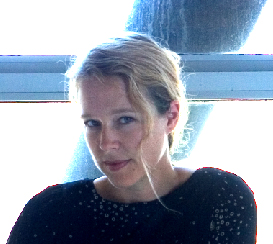I’d say that we’re on the cusp of a cultural/societal shift of great import when Republican David Brooks effectively promotes communitarianism over individualism. His take on finding a life’s purpose (“The Summoned Self”/NYTimes.com) is nothing short of inspiring. Brooks suggests asking yourself “What is the most useful social role before me?” given the context you find yourself in, rather than carefully conceiving a life’s path and following it unabated (as an individualistic “lone free agent”) until fruition. For him, being sensitive and situational, rather than calculated and directional, allows us to “dissolve into a larger purpose and cause.” How far we’ve come.

Shareable began publishing just over a year ago. As a fan, a reader and an editorial advisor, I say THANK YOU to the Shareable community for creating critical mass around what is a simple yet powerful communitarian idea: sharing resources is smart, efficient and in tune with patterns of humanity that go back thousands of years. Ursula K. Le Guin writes in The Dispossessed (a must-read communitarian sci-fi classic) that the nature of an idea is “to be communicated: written, spoken, done. The idea is like grass, It craves light, likes crowds, thrives on cross-breeding, grows better for being stepped on.” I see the most powerful aspect of Shareable as exactly this type of stepping on and cross-breeding. Together online we’re shaping an idea: sharing stories, information, dialogue and inspiration about the offline changes around us. And with ingenuity, and a “coming together” DIY spirit, we’re using this knowledge to pioneer a world where sharing is a natural and practical part of our daily lives.
Given that more and more people are sharing resources — dare I say that sharing is going mainstream? — it seems appropriate to collectively step back and take stock of what we’ve accomplished. It’s been a few years since the recession began, and forced many of us into sharing-based lifestyles. What have we learned? What are the best resource-sharing and community-building practices out there? How does resource sharing work over time? What problems are we overcoming? What tools do we have? What tools do we need to get to the next level?
As part of this “taking stock” we’ve decided – me as author, Shareable as publisher – to spend the next couple of months compiling a book of ‘how tos’ covering the 20 best resource-sharing techniques out there. We’ll focus on daily and weekly sharing techniques that start and grow among neighbors, friends, extended family and creative collaborators. Things like childcare co-ops, barnraising and skills sharing groups, seed swaps, community kitchens, and buying clubs. All presented in an accessible handbook format with lots of can do spirit. We see this as real-time, on-the-ground knowledge sharing; not too high-minded; not a book of deep social science, rather a rough and ready “access to tools” publication. In short, a practical, actionable guide for folks from all walks of life (single dads in the Denver suburbs to college dorm-mates at UC San Diego), valuable for seasoned sharers, and for newcomers alike.
And what better way to compile a “best practices” book than to gather knowledge from our Shareable community? From those of us who are creating this new world in real time, and learning as we go? So, in the spirit of “cross-breeding,” I’ll be posting topics for discussion twice weekly. The goal is to pick our collective brain, engage in dialogue, and hammer out some of the finer points. We’ll compile the posts with your comments, alongside more info about the book.
To kick off the dialogue, why not start at the beginning? What got each of us started? Save for those rather few, enviable folks who’ve been sharing all along, most of us have only recently turned away from our old “me” patterns and adopted new “we” ones. Why did we do it? For me resource-sharing seemed like the smartest way to address the systemic failures I saw all around me: economic, societal, environmental. I did quite a bit of research and thinking about resource-sharing (and also a few projects, starting back in 2008). But even armed with that knowledge (in my head), it wasn’t until six months ago that I had to engage my own community, literally in order to survive. That’s when I felt the power of sharing in my heart. More on my story in a future post.
What motivated you to start sharing? Did you want to save money? Build community? Help save the earth? Or was it just too smart to resist? Let’s talk origin stories. What — or who — inspired you to get started? What snags, if any, did you encounter as you began? What do you find valuable about resource sharing now that you’re underway? And why do you stick with it?
This is the first installment in a twice-weekly series inspired by an upcoming book on "neighborhood sharing" by Stephanie Smith. Next: "Facebook, You Call That Sharing?!"
You may also want to check out The Third Economy: Allison Arieff talks with Stephanie Smith.









